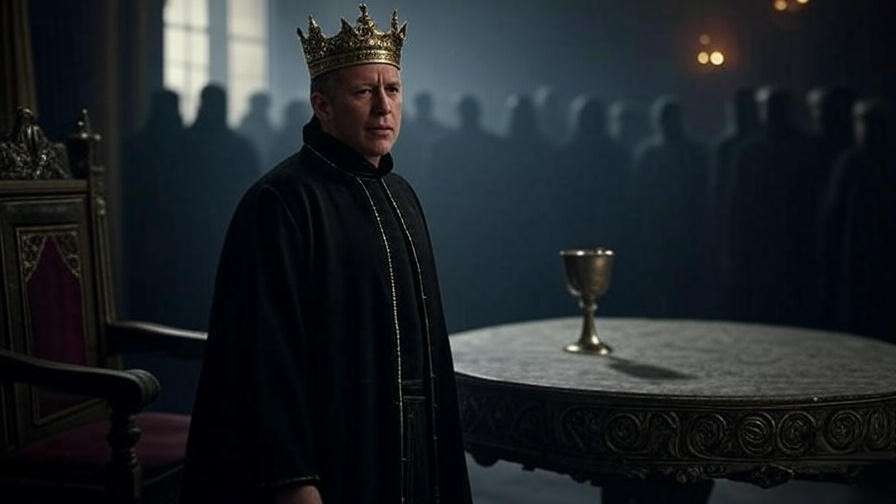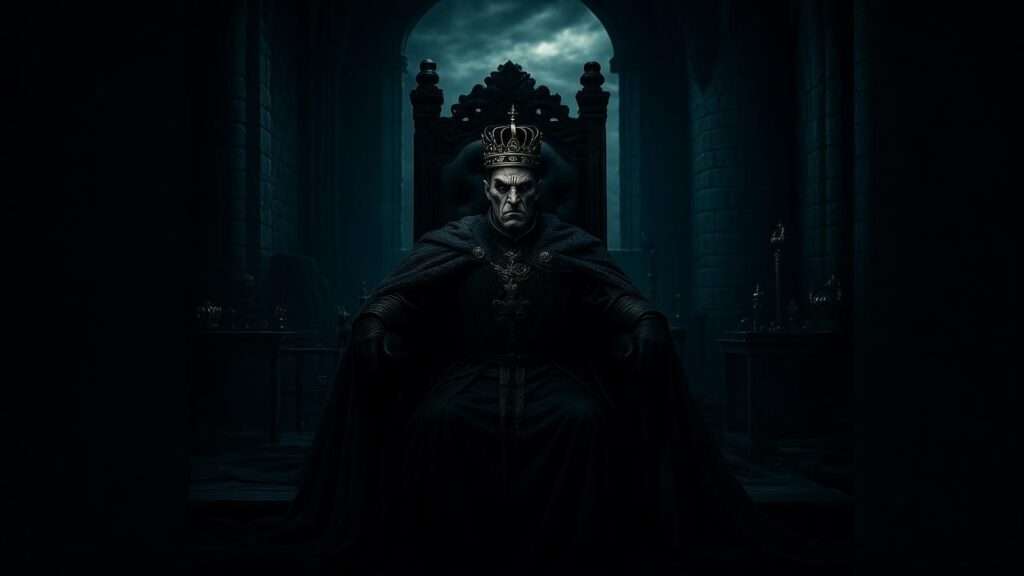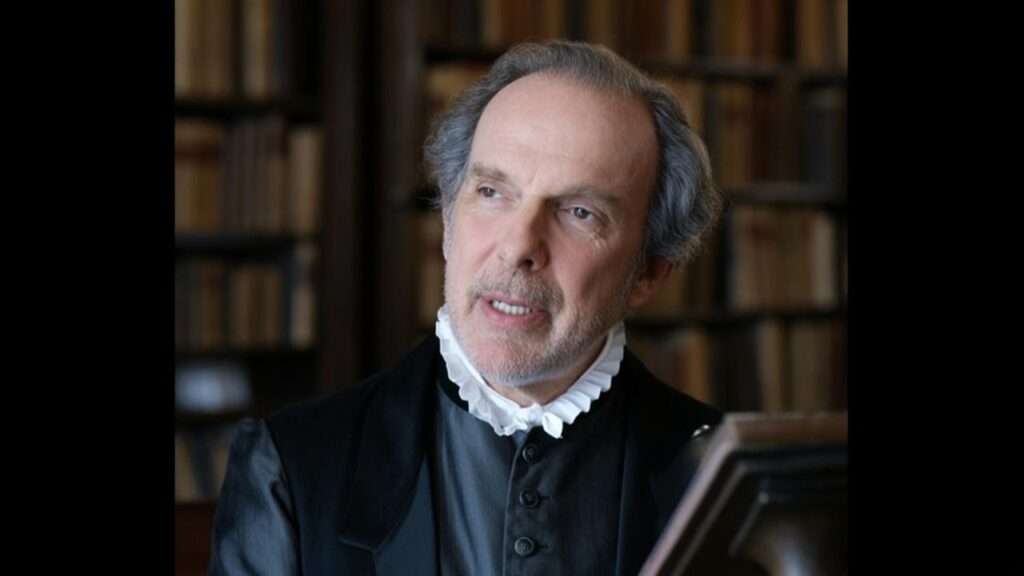Picture a darkened stage, a solitary figure cloaked in shadow, plotting to seize a crown through treachery. In Richard III, the wicked king schemes with chilling charisma, his words dripping with ambition: “I am determined to prove a villain.” Shakespeare’s portrayal of the wicked king captivates us, weaving tales of power, betrayal, and moral decay that resonate across centuries. Why do these villainous monarchs—Richard III, Macbeth, Claudius—still haunt our imaginations? Their stories reflect timeless truths about leadership, ambition, and the human condition, offering lessons as relevant today as in Elizabethan England. As a Shakespeare scholar with years of studying these texts, I invite you to explore the wicked king archetype, decoding its complexities and uncovering why these characters endure in literature and culture. This comprehensive guide will analyze their motivations, betrayals, and legacies, providing insights for students, enthusiasts, and anyone intrigued by the darker side of power.
What Defines a “Wicked King” in Shakespeare’s Universe?
The Archetype of the Villainous Monarch
Shakespeare’s wicked king is more than a villain; he’s a complex figure driven by ambition, manipulation, and moral corruption. Literary scholar A.C. Bradley describes these characters as “tragic figures whose flaws magnify their humanity,” blending charisma with cruelty. The wicked king often ascends through deceit, betraying kin or country to grasp power, only to face inevitable downfall. This archetype embodies the tension between desire and morality, making characters like Richard III and Macbeth both repulsive and magnetic. Their defining traits—cunning, hubris, and a knack for self-justification—set them apart from mere antagonists, offering a lens into the dangers of unchecked ambition.
Historical and Cultural Context
Shakespeare wrote during a time of political uncertainty, with Elizabethan England grappling with fears of tyranny and succession crises. His wicked kings reflect these anxieties, drawing inspiration from historical figures chronicled in Raphael Holinshed’s Chronicles of England, Scotland, and Ireland. For instance, Richard III’s portrayal as a scheming usurper aligns with Tudor propaganda vilifying the last Plantagenet king, while Macbeth’s story echoes the turbulent reigns of Scottish monarchs. These characters served as cautionary tales for audiences wary of unstable leadership, a concern mirrored in modern discussions of authoritarianism. By grounding his villains in historical context, Shakespeare ensured their relevance, making them timeless studies of power’s corrupting influence.
Expert Insight: Renowned Shakespearean scholar Marjorie Garber notes, “The wicked king critiques the fragility of power, exposing how ambition erodes trust.” This perspective underscores the archetype’s role as a mirror to societal fears, reinforcing its scholarly significance.
Iconic Wicked Kings in Shakespeare’s Plays
Richard III: The Charismatic Tyrant
Richard III is perhaps Shakespeare’s most iconic wicked king, a master manipulator whose physical deformity mirrors his moral corruption. In his opening soliloquy, he declares, “Since I cannot prove a lover… I am determined to prove a villain” (Richard III, 1.1), setting the stage for his ruthless ascent. Richard’s charisma captivates audiences, as he gleefully orchestrates the murder of his brother Clarence and manipulates Lady Anne into marriage. His betrayal of kin and allies exemplifies the wicked king’s disregard for loyalty, yet his wit makes him strangely compelling. Scholars argue Richard’s deformity symbolizes his inner corruption, a motif rooted in Elizabethan beliefs about physicality reflecting character.
Macbeth: The Tragic Usurper
Macbeth’s journey from loyal thane to murderous king embodies the tragic arc of the wicked king. Spurred by the witches’ prophecy and Lady Macbeth’s urging, he murders King Duncan, declaring, “I am settled, and bend up / Each corporal agent to this terrible feat” (Macbeth, 1.7). His ambition unravels into paranoia, leading to further betrayals, like Banquo’s murder. Unlike Richard’s gleeful villainy, Macbeth’s guilt—evident in his haunting visions of daggers and ghosts—humanizes him. Psychoanalytic critics, including Sigmund Freud, interpret Macbeth’s descent as a study in ambition’s psychological toll, making him a tragic rather than purely villainous figure.
Claudius: The Subtle Betrayer
In Hamlet, Claudius presents a subtler wicked king, his polished demeanor masking fratricide and ambition. By murdering his brother, King Hamlet, and marrying Gertrude, Claudius seizes the Danish throne, a betrayal that sets the play’s tragedy in motion. His calculated nature shines in his diplomatic handling of Hamlet’s suspicions, as seen in, “My offence is rank, it smells to heaven” (Hamlet, 3.3), where he briefly grapples with guilt. Unlike Richard’s overt villainy or Macbeth’s spiraling paranoia, Claudius’s restraint makes him a uniquely insidious wicked king, highlighting Shakespeare’s versatility in crafting villainy.
Expert Tip: The following table compares these wicked kings for clarity:
| Character | Key Traits | Primary Betrayal | Downfall |
|---|---|---|---|
| Richard III | Charismatic, manipulative | Murders kin (Clarence, princes) | Defeated at Bosworth |
| Macbeth | Ambitious, guilt-ridden | Murders Duncan, Banquo | Killed by Macduff |
| Claudius | Subtle, calculating | Fratricide (King Hamlet) | Poisoned by Hamlet |
Engagement Element: Which wicked king’s story resonates most with you? Share your thoughts in the comments below!
Themes of Power and Betrayal in the Wicked King Archetype
The Seduction of Power
Power is the siren call that lures Shakespeare’s wicked kings to their doom. In Macbeth, the protagonist’s “vaulting ambition” (Macbeth, 1.7) drives him to murder, illustrating how the promise of authority corrupts. Richard III revels in power’s game, manipulating others to secure the crown, while Claudius’s quiet ambition leads to fratricide. Shakespeare uses these characters to explore power’s allure, showing how it distorts judgment and morality. Modern parallels—such as corporate scandals or political overreach—echo this theme, making the wicked king a cautionary figure for today’s leaders.
Betrayal as a Catalyst for Tragedy
Betrayal is the wicked king’s hallmark, sparking the tragedies that define their stories. Richard III betrays his brother Clarence, ordering his murder in the Tower of London. Macbeth betrays Duncan’s trust, violating the sacred bond of host and guest. Claudius’s fratricide shatters familial loyalty, setting Hamlet on a path of vengeance. These acts ripple outward, destabilizing kingdoms and relationships, a pattern Shakespeare uses to underscore betrayal’s far-reaching consequences. As scholar Stephen Greenblatt observes, “Betrayal in Shakespeare is both personal and political, unraveling the social fabric.”
Moral and Psychological Consequences
The wicked king’s actions exact a heavy toll, both morally and psychologically. Macbeth’s guilt manifests in vivid hallucinations, like the floating dagger or Banquo’s ghost, reflecting his fractured psyche. Richard III, though less remorseful, faces a crisis of conscience before Bosworth, crying, “My conscience hath a thousand several tongues” (Richard III, 5.3). Even Claudius wrestles with guilt in his confessional soliloquy, revealing a flicker of humanity. These moments, grounded in psychological realism, make Shakespeare’s villains relatable, inviting readers to ponder the cost of ambition and betrayal.
Engagement Element: Reflect on this: Which Shakespearean king’s betrayal resonates most with you, and why? Share your insights below to join the conversation!
Why the Wicked King Endures in Literature and Culture
Universal Appeal of the Archetype
The wicked king archetype captivates because it taps into universal fears and fascinations with flawed leadership. Shakespeare’s villainous monarchs—Richard III, Macbeth, Claudius—embody the dangers of ambition and betrayal, themes that resonate across cultures and eras. Their stories mirror modern struggles with power, whether in politics, corporate boardrooms, or personal relationships. For instance, the cunning of a Richard III finds echoes in complex antagonists like Cersei Lannister from Game of Thrones, whose ruthless pursuit of power captivates audiences. As Shakespeare scholar Jan Kott notes, “Shakespeare’s kings are timeless because they reflect the eternal conflict between desire and duty.” This universality ensures the wicked king remains a compelling figure, inviting readers to question the ethics of leadership in their own lives.
Influence on Modern Storytelling
Shakespeare’s wicked kings have left an indelible mark on modern storytelling, shaping narratives in film, television, and literature. Characters like Scar in Disney’s The Lion King draw directly from the archetype, with his fratricide and usurpation mirroring Claudius’s crimes in Hamlet. Political dramas like House of Cards echo Richard III’s manipulative charisma, while epic fantasies borrow Macbeth’s tragic ambition. Scholarly works, such as those by Harold Bloom, highlight Shakespeare’s influence, noting how his villains provide a blueprint for exploring moral ambiguity. By crafting characters who are both despicable and relatable, Shakespeare ensures the wicked king’s legacy endures in contemporary narratives, from blockbuster films to bestselling novels.
Expert Insight: Director Kenneth Branagh, reflecting on his adaptation of Hamlet, remarked, “Shakespeare’s wicked kings inspire because they reveal the fragility of power and the complexity of human motives.” This perspective underscores the archetype’s lasting impact on creative arts.
Lessons from Shakespeare’s Wicked Kings for Today’s Audience
Leadership and Ethical Governance
Shakespeare’s wicked kings offer cautionary lessons for modern leadership. Their unchecked ambition and betrayal highlight the importance of accountability, transparency, and ethical governance. Richard III’s manipulation teaches us the dangers of charisma without integrity, while Macbeth’s paranoia warns against decisions driven by fear. Claudius’s subtle treachery reminds leaders to prioritize trust over personal gain. These insights resonate in today’s world, where scandals involving political or corporate leaders echo Shakespearean themes. For example, a CEO who prioritizes profit over ethics might mirror Claudius’s calculated ambition. By studying these characters, readers can better understand the qualities of effective, principled leadership.
Practical Tip: Reflect on your own leadership style. Ask yourself, “Am I prioritizing trust and accountability in my decisions?” Journaling this question can help identify areas for growth, whether in professional or personal contexts.
Personal Reflection on Power and Betrayal
The wicked king’s story invites readers to reflect on power and betrayal in their own lives. Have you ever faced a moment where ambition tempted you to compromise your values? Or experienced betrayal that shifted your perspective? Shakespeare’s characters encourage introspection, urging us to examine our motivations and relationships. For instance, Macbeth’s guilt-driven descent might prompt readers to consider how they handle moral dilemmas. By connecting these themes to everyday experiences, the wicked king becomes a lens for personal growth, making Shakespeare’s works as relevant in the boardroom as on the stage.
Engagement Element: Download our free PDF checklist, “5 Leadership Lessons from Shakespeare’s Wicked Kings,” to explore actionable insights for ethical decision-making. Share it with colleagues to spark meaningful discussions!
How to Study and Appreciate Shakespeare’s Wicked Kings
Tips for Students and Enthusiasts
Analyzing Shakespeare’s wicked kings requires a blend of textual study and creative engagement. Start by focusing on soliloquies, which reveal the characters’ inner thoughts. For example, Richard III’s opening speech in Richard III lays bare his villainy, while Macbeth’s “Is this a dagger” soliloquy (Macbeth, 2.1) exposes his psychological turmoil. Resources like the Folger Shakespeare Library or Arden Shakespeare editions offer annotated texts to deepen understanding. Joining a study group or online forum, such as those hosted by the Shakespeare Birthplace Trust, can also enrich analysis through discussion. For students, taking notes on character motivations and thematic connections strengthens critical thinking.
Engaging with Performances
Watching performances brings the wicked king to life, revealing nuances in interpretation. Ian McKellen’s 1995 film Richard III portrays the king as a fascist dictator, emphasizing his tyrannical charisma, while the Royal Shakespeare Company’s 2016 Macbeth highlights the protagonist’s tragic vulnerability. Streaming platforms like BBC iPlayer or Globe Player offer access to high-quality productions. Pay attention to how directors and actors interpret these characters—do they emphasize villainy or humanity? Comparing performances deepens appreciation, revealing the archetype’s versatility.
Expert Tip: Host a Shakespeare reading group focused on wicked kings. Choose a play (Richard III, Macbeth, or Hamlet), assign roles, and read key scenes aloud. Discuss questions like, “How does this king’s betrayal shape the play’s tragedy?” This interactive approach fosters community and insight.
Shakespeare’s wicked kings—Richard III, Macbeth, Claudius—are more than villains; they are complex studies of power, betrayal, and human frailty. Their stories, rooted in Elizabethan fears, resonate with modern audiences, offering timeless lessons on leadership and morality. By exploring their motivations, betrayals, and psychological depths, we uncover insights into our own ambitions and relationships. Whether you’re a student, enthusiast, or curious reader, these characters invite you to question the cost of power and the consequences of betrayal. Dive into Shakespeare’s plays, share your thoughts in the comments, or explore related articles on the William Shakespeare Insights blog. What can these wicked kings teach us about navigating power in our own lives?
FAQs
Who is the most “wicked” king in Shakespeare’s plays?
Richard III, Macbeth, and Claudius each embody wickedness differently. Reader polls on platforms like X often favor Richard III for his gleeful villainy, but Macbeth’s tragic arc and Claudius’s subtle treachery are equally compelling. It depends on whether you prioritize overt cruelty or psychological complexity.
How does Shakespeare’s portrayal of wicked kings differ from historical accounts?
Shakespeare drew from sources like Holinshed’s Chronicles but embellished for dramatic effect. For example, Richard III’s villainy was amplified by Tudor propaganda, while Macbeth’s story condenses and dramatizes historical events for tragic impact.
Why are Shakespeare’s wicked kings still relevant today?
Their themes of ambition, betrayal, and power resonate with modern issues, from political scandals to personal ethics. They serve as cautionary tales, encouraging reflection on leadership and morality.
How can I start studying Shakespeare’s villainous characters?
Begin with accessible texts from the Folger Shakespeare Library, focus on soliloquies, and join online forums like those on Reddit’s r/Shakespeare. Watching performances on Globe Player can also spark deeper interest.





